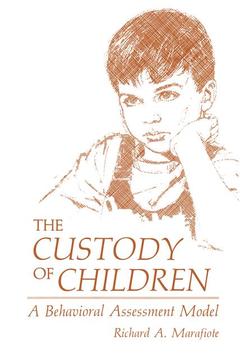Separation and divorce have become an inevitable factor in American society. Even those of us who have not experienced these events di rectly have been touched by them through association with parents, friends, neighbors, or co-workers. Frequently, we have observed these individuals express a variety of negative emotions, including insecurity, anxiety, depression, fear, and anger. If children are involved, their par ents' decisions and often dysfunctional maneuvers in this matter will most likely have a profound affect on them. One such decision will be with whom they will live. Although the great majority of children will live with their mothers following a divorce, this arrangement is no longer accepted as inevitable. Changes such as an ever-increasing num ber of mothers with full-time out of home employment and research supporting the significance and competence of fathers in child rearing have led many observers to challenge the assumption of maternal supe riority. These changes, as well as those related to the law and child cus tody, for example the increased acceptability of a joint custody arrange ment, have complicated the process of deciding where a child should live after his or her parents' divorce. Consequently, others are fre quently called upon to assist in the decision making and render an opin ion concerning custody and visitation. By and large these individuals will be members of the mental health profession.




